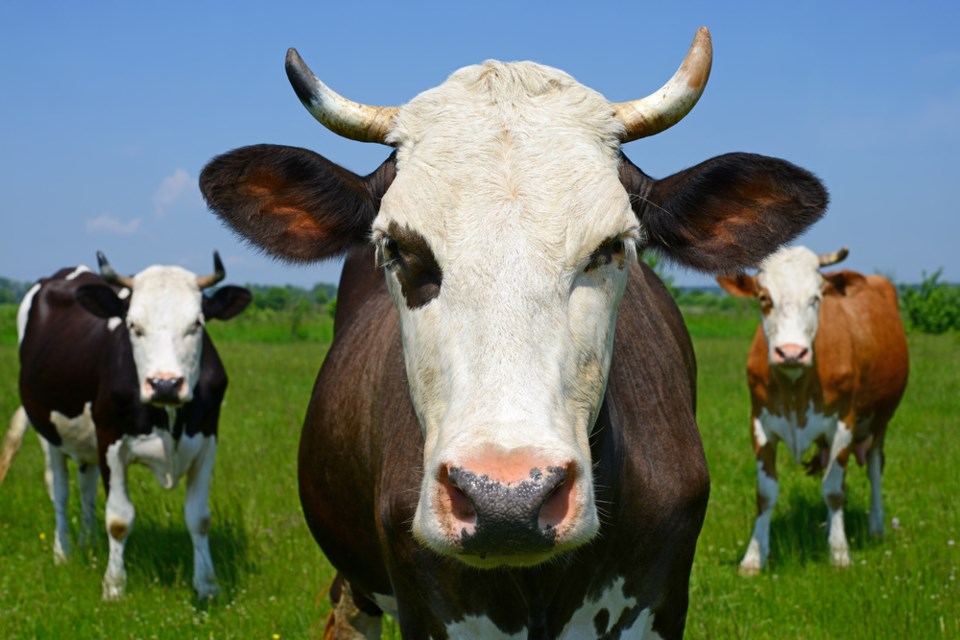Cattle have antibodies that are highly effective at getting at pathogens that are hard to get at. Researchers are the University of Guelph see a way to use them to improve human health.
When it comes to cows, there are the knowns and the lesser knowns. They drink the equivalent of a bathtub full of water each day. They have a single stomach with four chambers. And they can’t see the colour red. And they have the longest antibody known to exist in any species.
A recent discovery related to that lesser known genetic characteristic has biological scientists at the U of G excited. They have found that the animal’s antibodies could be harnessed to cure and prevent human diseases, even cancer.
Lead by molecular and cellular biology professor Azad Kaushik, the researchers have developed novel vaccines from cow antibodies, and are exploring ways to use the technology in human health.
They engineered a new kind of antibody that boosts results in the fight against resilient respiratory disease in cattle. The antibody manipulation has the potential for use in the development of vaccines to attack pathogens in people.
“In the 90s, we discovered that the largest sized antibody known to exist in any species is in cattle,” said Kaushik in an interview.
These ‘megabodies’ are extremely long, and are genetically programmed into cattle at birth.
“The structural uniqueness of this antibody permits it to recognize or see hard to reach antigens,” Kaushik said, speaking of toxins or other foreign substances that induce immune responses in the body. That portion of the antibody that recognizes the antigen, he said, is extremely unique.
“In simple terms, I like to say this antibody has an antigen recognition capacity like a punch – it makes a punch into the pathogen,” he said.
After learning more about the unique antibody, Kaushik and his team engineered antibody fragments for therapeutic purposes, using bovine herpes as the model virus. It is a major disease in cattle, and one that is detrimental to animal health and a hindrance to international trade.
An existing vaccine can be ineffectual under certain conditions, but a new antiviral drug was developed and had positive results. A paper on the groundbreaking research was recently published in Molecular Immunology. U of G PhD student Yfke Pasman was the lead author.
“What we are beginning to understand is that the unique structural characteristic of this antibody permits it to get at hard to reach antigens in viruses like HIV and destroy the virus,” Kaushik said. “The question now is how to humanize this cattle antibody.”
Kaushik said the technology exists whereby human components can be engineered into the cattle antibody, tricking the human body into seeing it as its own. He is confident various novel vaccines, including vaccines against cancer, can be developed using the cow antibody platform.
The technology is in the process of being patented. The goal is to market it to drug companies to develop new therapies against a number of diseases.
“At this point in time we have the proof of concept,” he added. “We have successfully used this antibody scaffold to make new kinds of vaccines. We just need to exploit its potential.”
